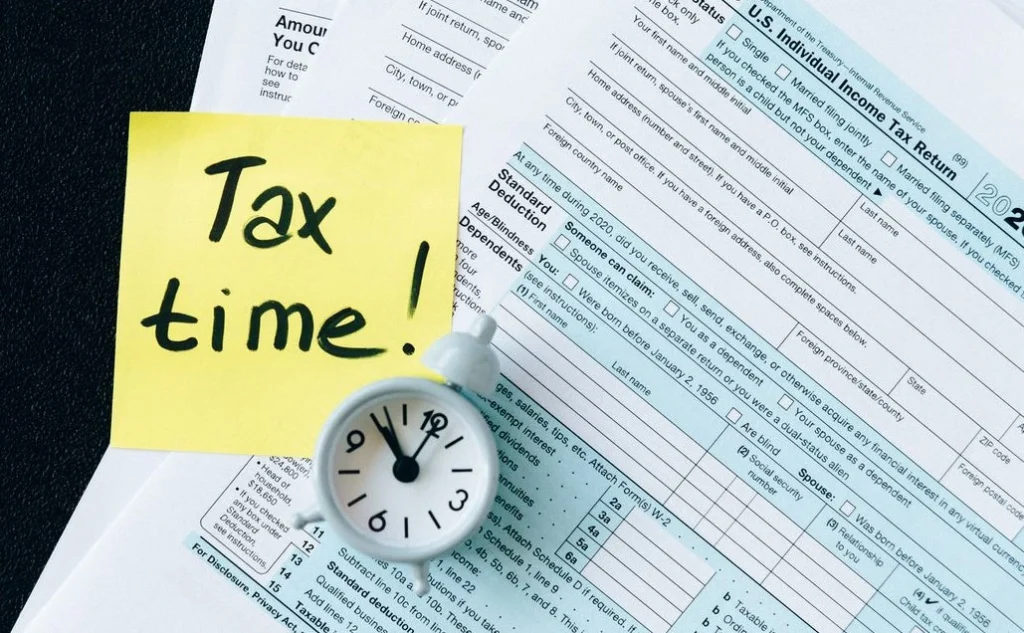Proper preparation of financial files is very important as tax season approaches. Well-organized financial files ensure that the whole process of tax filing will be smooth and fast, free of mistakes that might leave out eligible deductions and credits. Irrespective of your decision to engage tax preparation services or do it yourself, having everything in place before it’s too late will save you precious time as well as the expensive mistakes that often accompany poor planning. Here we shall discuss how to get your financial documents in order, some key takeaways for efficient tax planning services, and how you can keep your records tidy throughout the year.
H2: Why Preparing Financial Documents Ahead of Time Makes Sense for Tax Season
Keeping everything in order will show on tax time. You are always able to give accurate information to the preparation services provider, and you will know, too, what you may have missed for deductions and credits—it can really reduce your tax liability and increase your return.
Organization also makes the filing process easy, minimizes mistakes, and eliminates the chance of an audit. Whether you are a business owner or a tax filer individual, an organized system makes sure that you keep your tax obligation in order.
H2: Important Documents to Gather Before Tax Time
Before starting the organization process, it is necessary to collect all the financial-related documents. Here are the most important documents to collect:
H3: Income Statements:
- W-2 Forms: All of your wages and withholdings will appear on one of these if you are an employee.
- 1099 Forms: These cover multiple sources of income that might apply to a freelancer or contractor, such as independent contracting, investment earnings, or rental income.
H3: Deduction and Credit Documentation
- Receipts for Charitable Contributions: You will use these to establish deductions for any charitable contribution.
- Mortgage Interest Statements: This could be Form 1098, which does carry mortgage interest paid and can be used as a deduction.
- Medical Expenses: Collect all the bills for heavy medical expenses that could qualify for deduction if they exceed a percentage of income.
- Tuition Payments: Form 1098-T will be necessary when you pay tuition and may qualify you for education credits.
H3: Investment and Retirement Accounts:
- 1099-DIV and 1099-INT: These report interest and dividends from investments. They should be included as income.
- Retirement Contribution Records: Record your IRA or 401(k) contributions for the year, as it can modify your deduction or credit.
H3: Business-Related Records (If You are Self-Employed)
- Income and Expense Records: Document your business income and expenses, including supplies, software, and travel expenses.
- Business Purchase Receipts: These should be categorized and summarized to correctly claim them as a deduction.
H2: Organizing Your Financial Papers
Now that you have all these important tax documents in hand, it is high time for preparation before the tax season. Here’s a step-by-step guide for you to stay organized:
H3: 1. Organize Docs by Category
For instance, organize your documents under the categories of income, deductions, credits, and any other categories of financial info. For instance, you can have folders categorized into the following documents: wage statements (W-2, 1099), investment income, business expenses, charitable contributions, and medical expenses. This way, you can easily find information when you need it.
H3: 2. Go Digital
Consider scanning any of your financial documents. They will be stored in digital folders, using up less space, and can be easily retrieved. Most tax preparation service providers now allow digital copies, so having them safely stored in a cloud-based location will make it easy to share them with your tax preparation service provider.
H3: 3. Use a Tax Preparation Checklist
Create a checklist of everything you will need to prepare your taxes. As each document and piece of information comes in, check it off the list so there is nothing missed. The majority of tax preparation services have a checklist to ensure that nothing gets overlooked.
H3: 4. Maintain Accounting Records All Year Round
Instead of rushing around for documents during tax season, maintain accounting records all year round. Set aside some time every month or quarter to sort through receipts, track expenditures, and update income records. This way, you will avoid a mad scramble at the end of the year.
H2: Utilization of Tax Preparation and Planning Services
Coordinating with professionals for tax preparation services can save your time and minimize the stress. It assures you accurate tax returns, maximization of deductions, and avoidance of possible audits. Tax professionals may also advise you in difficult situations like capital gains, business deductions, or rental income.
As far as the services of tax planning are concerned, it looks at long-term strategies to reduce tax liability. Retirement planning, strategy on investments, and estate planning work well to let you protect wealth in the long term.
H3: Advantages of Professional Tax Services
- Deduction Maximization: Experts will know more deductions you have been missing to have the right return at the tax office.
- Accuracy: A tax preparer minimizes the chances of errors, which can result in penalties or audits.
- IRS Representation: In the event of an audit, your preparer will be your representation to be relieved of all liabilities pertaining to the audit.
- Future Planning: Tax planning services devise strategies with you over the year for future years when your overall tax burden may come down.
In addition to preparing your financial documents each year during tax season, strategic long-term tax planning can also help to shore up your financial future. Here are a few important tips for successful tax planning:
H3: Top Off Your Retirement Contributions
Contributions made to tax-deferred retirement accounts, such as IRAs and 401(k)s, lower your taxable income, providing you with current tax savings while helping to build your retirement reserves.
H3: Utilize Tax-Advantaged Investments
Investment in tax-exempt municipal bonds and low-dividend stocks will help you minimize your capital gains taxes and thus make the portfolio more tax-advantageous.
H3: Use Charitable Donations
Giving to qualified charities will not only help the causes you care about, but it will also give you generous tax deductions that lower your taxable income.
H2: Conclusion
Preparing for tax season is more than just filling out those returns. Organizing and keeping track of your financial documents throughout the year will make for an easier filing process, accurate returns, and maximize your tax benefits. You can save a whole lot of pain with the help of tax preparation services and secure your financial future, making everything worth it.






